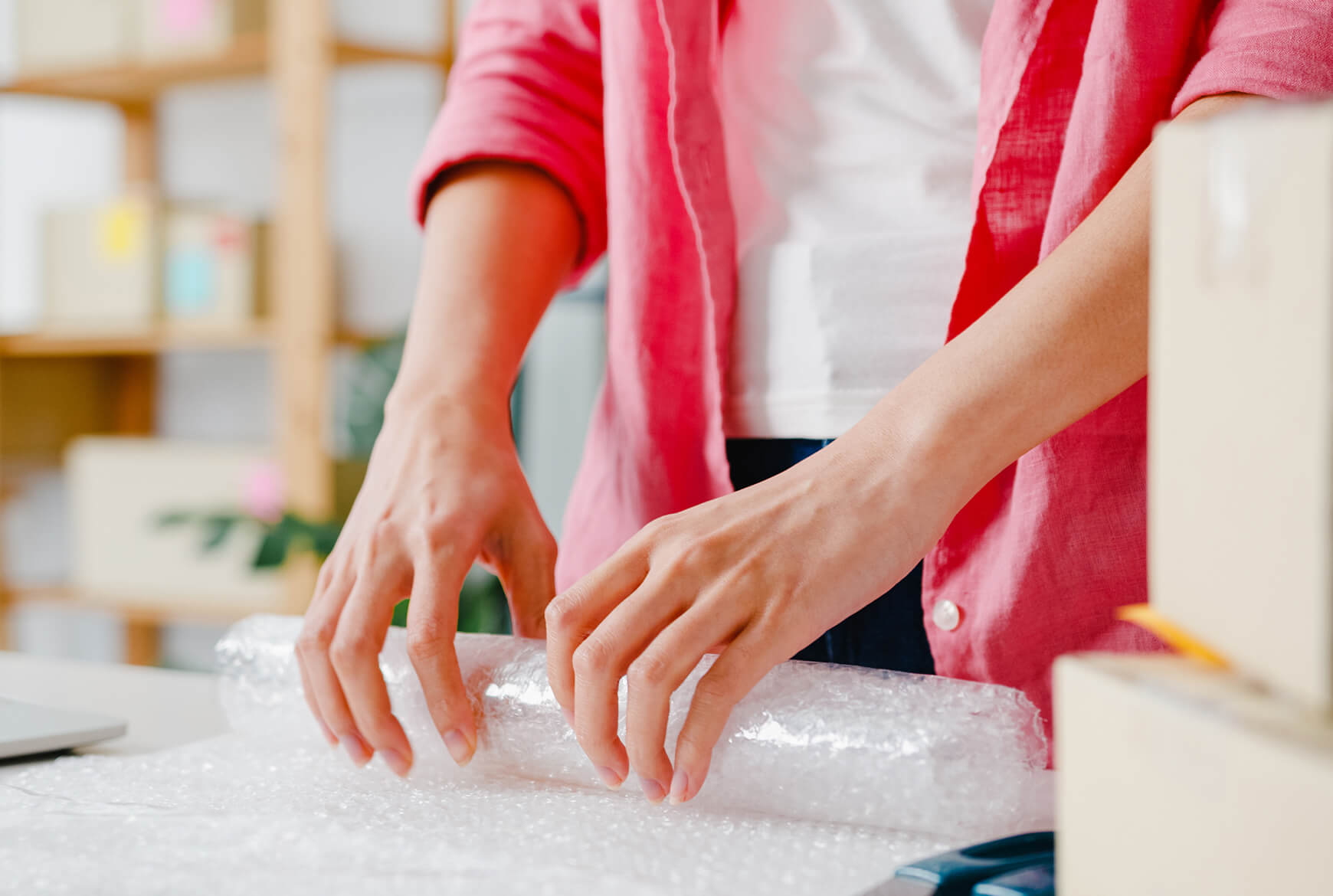This article is for information purposes only and is not intended to replace professional advice.
Online Sales: Avoiding claims for your packages

Receiving a damaged package or not receiving it at all are some of the hazards of online shopping. Of course, you want everything to go smoothly for your customers. Unfortunately, when it comes to shipping, there are things you can't control. To help you mitigate the risks, here’s some advice and helpful information.
Shipping 101
Packaging is more than just an envelope or a box, it plays a role in the customer experience. It’s the first impression that your customer will have of your product and your company. By carefully packing your products, you protect your merchandise as well as your reputation!
Basically, it's up to the business to make sure that packages are sent to the right address and get there in mint condition. This means:
- Using packaging adapted to your products (This hyperlink will open in a new tab) and the means of transportation.
- Using cushioning materials like bubble wrap, foam flakes or newspaper to help prevent damage from shocks or vibrations during shipment.
- Being just as careful when it comes to labelling because address mistakes can lead to lost packages. The address must be exact and legible, and the label securely affixed.

As far as insurance is concerned, a deductible is normally applied to claims for lost or damaged packages. However, the deductible is often higher than the value of the package. This makes following our advice on how to properly ship your packages all the more worthwhile.
Who is responsible for lost or damaged packages?
What happens when, despite your best efforts, a package is lost or damaged? The answer will vary depending on your province of residence.
Most provincial laws protect consumers. For example, in Quebec, a client who doesn’t receive a purchase within 30 days of the scheduled delivery date can demand a refund. If the contract does not stipulate a delivery date, then the deadline is 30 days after purchase.
Who will have to pay? That depends on whether you use a delivery company or do it yourself.
Using a delivery company
In general, the delivery company is responsible for lost or damaged property during shipping.
However, there are limits to your liability, especially when it comes to causes or situations that are out of your control. For worry-free shipping, it's important to take out insurance covering goods in transit. This reduces your financial risk should you have to replace or reimburse any products.
Work with a reputable, reliable delivery company. Read their parcel management, tracking and customer service policies. Their ability to provide exact delivery times will also contribute to your customers’ satisfaction. Consider that too!
Delivering packages yourself
In short, commercial property insurance protects your property when it’s in your building. To insure your property during shipping, you will need to take out insurance for goods in transit. Please note that this coverage has exclusions.
For example, the insurance could exclude damage caused by:
- inadequate or poorly designed packaging
- a delivery mistake or unexplained disappearance
- theft of goods from an unlocked vehicle
- heating or refrigeration equipment failure or malfunction
For the latter, optional coverage is available to cover the risks associated with goods that require temperature-controlled shipping.
Make sure you're protected... just in case
Commercial insurance will vary based on the nature of your business.
Coverage may not apply to certain products like alcohol, birds from a pet store, precious gems (no, your shipment of rubies is not covered... pity).
Know the exclusions to avoid unpleasant surprises. This will allow you to better manage the risks and take precautions when shipping packages.
Contact your insurer to tell them about the:
- types of goods you ship
- destination countries or locations
- means of transportation used (boats, planes, trucks)
They will tell you what's covered and what’s not, and help you find solutions.
From online sale to worry-free delivery
The rising popularity of ecommerce means more deliveries—a sign that your business is booming! Make sure you have the insurance you need to avoid the hassle of lost or damaged packages.
Always ship packages with care.
Through reliable deliveries, you'll be able build the trust of your online shoppers and give your company a good reputation, and that’s priceless.
